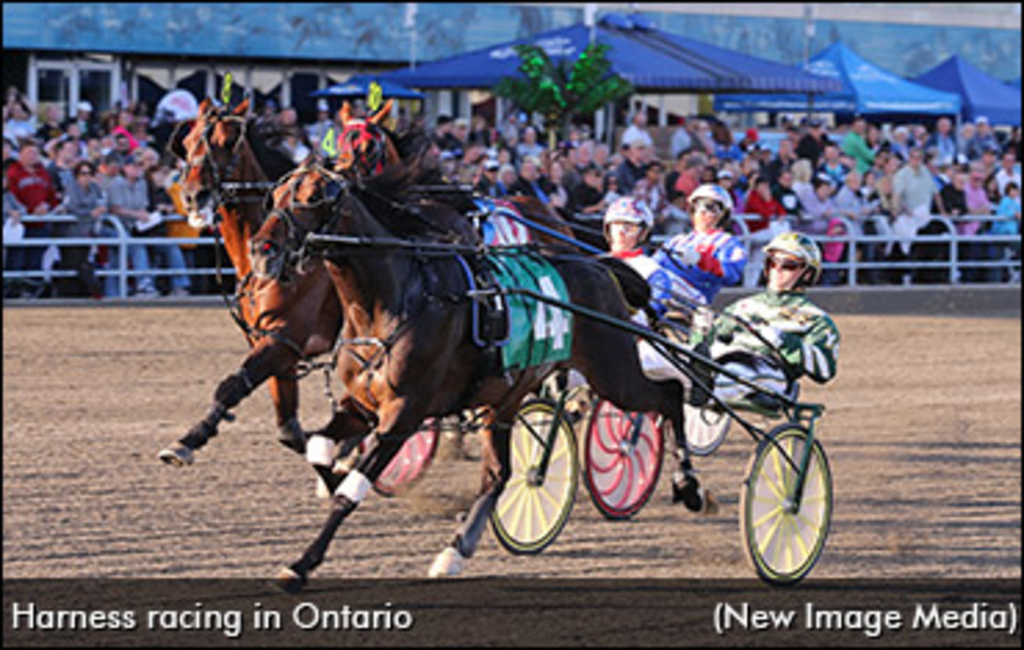Cobalt Directive Amended

On Tuesday, August 18, the Ontario Racing Commission issued a Notice to the Industry which states that the commission has amended one of its directives to now reflect that claimed horses can be tested for cobalt.
Via release – the contents of which appear below – the ORC has announced that if claimants wish to have a horse tested for cobalt, they must note that on the official claim form.
The release goes on to state that if a claimed horse is found to have unacceptable levels of cobalt during an approved post-race test, ORC judges have the authority, at the option of the claimant, to rule a claim invalid.
To view a copy of the amended directive, click here.
Claimed Horses Can Be Tested For Cobalt: Amended Directive
The Ontario Racing Commission (ORC) issued a Notice to the Industry on June 3, 2015 advising that Ontario will begin testing for cobalt with a threshold of 50ng/ml in blood, as of August 1, 2015.
On July 24, 2015, a Notice to the Industry advised that trainers and owners can choose to have a claimed horse post-race tested for cobalt at their own expense.
The attached amended Directive has been issued to provide clarity for this policy.
If you wish to have a horse tested that you have claimed, please note that on the Official Claim Form.
Please note that if a claimed horse is found to have unacceptable levels of cobalt during an approved post-race test, the Judges/Stewards have the authority, at the option of the claimant, to rule a claim invalid.
The ORC believes that cobalt testing is not only a matter related to the integrity of horse racing, but more importantly an animal welfare issue. When administered in appropriate quantities, there is likely very little performance benefit to cobalt. And when used in excess, this element can be toxic to horses.
(With files from the ORC)


I'll take the bet Garnet...
I'll take the bet Garnet... all you want. Any trainer that doesn't get the test done, takes the risk that he/she could get a cobalt positive a week later after never having administered a thing. All trainers would want to know if the horse had a high cobalt level before taking control of the animal... and most would probably choose to have the claim ruled invalid if that were to be the case.
In reply to I'll take the bet Garnet... by Dan Fisher
It'll be interesting to see
It'll be interesting to see how it plays out. 100% of me hopes you are right b/c it could be a game changer that is badly needed...but I have my doubts...
The ORC should cover the
The ORC should cover the testing costs of ALL (not just cobalt) long term medications on claimed horses. Firstly it protects the new owner and trainer and horse. Secondly, testing is a regulatory function and should not be downloaded to the owner. They're faced with enough costs. Since there are so few claims, the costs to the ORC can't be that significant. It's their job to offer some protection. While you hate to think it, what do you do if an owner and trainer have a bitter disagreement and part ways and the horse is given a long lasting medication unbeknownst to the new trainer? How do you protect the new trainer? Thankfully it's unlikely ... but it's a possible circumstance.
If I read this right, the
If I read this right, the commission is hoping a trainer claims a horse, then immediately demands a Cobalt test. When the test comes back positive, in essence, what it means is that the trainer doing the claiming has indirectly "outed" or ratted on the original trainer.
Good Luck with that ORC. 1/20 shot that we never see it happen. Ever.
In reply to If I read this right, the by kinggocash
Its pretty obvious Mr
Its pretty obvious Mr Barnsdale, by your comment that you have neither the horse's best interest in mind, or the fact that someone who wants the test may "out" a cheater. Not a wonder the industry is in such a state.
It would be good to know what
It would be good to know what the test costs? If the cost is excessive and the claimant is responsible it could be something that is declined at the time of the claim, and as stated this is important to the welfare of the horse.